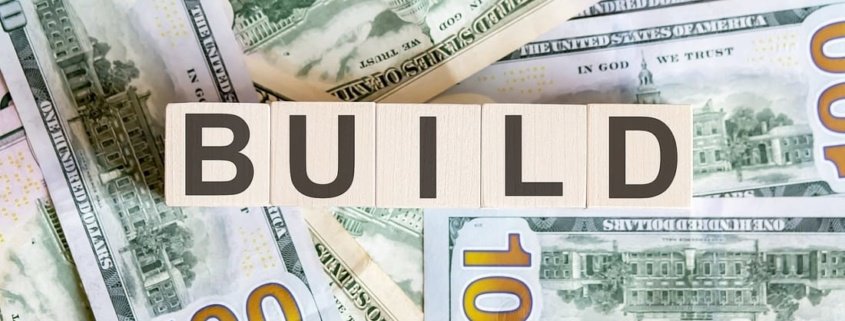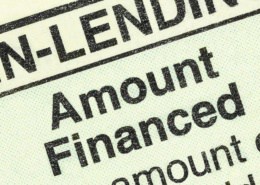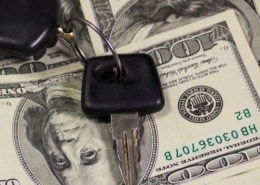How to Establish Good Credit History From Scratch
It’s not easy to build a credit history from scratch. It can be even more challenging if you’re a young adult, especially if you’re under the age of twenty-one.
It can still be done appropriately and should be done to build a strong credit score that will protect your financial future.
Table of Contents
- Why is a good credit score important?
- How to start building good credit
- Become an authorized user
- Apply for small lines of credit
- Secure credit cards are good tools
- Don’t apply for too many at once
- Pay your bill early
- Monitor your progress
- Go for an unsecured credit card
- Apply for an auto loan
- Get a responsible cosigner
Why is a Good Credit Score and History is Important?
A good credit score is the key to your financial well-being and will determine how much extra money you will have to spend to buy something on credit or apply for a loan. The worse your credit history is, the higher interest rates you will pay if you’re approved at all.
Lending institutions and creditors look at your credit history to decide whether to loan you money or give you a credit card. If you have no credit history, there is no record of how you will manage or pay back your debt. As a result, many lenders and creditors will not take a chance and lend you money or offer you any credit.
Why you should care about your credit history:
- It determines if you qualify for credit cards, vehicle loans, mortgages, or student loans.
- The deciding factor of how much you pay for auto insurance on your vehicle.
- It determines whether you get a car, apartment, or dream home.
- How high of interest rate you’ll pay on credit lines or finance loans?
- It will keep you from becoming a victim of the cosigner car dealer scam.
It’s much easier to build and maintain good credit history from scratch than to start with bad credit and try to repair it later.
Anything reported to your credit bureau will be filed on your credit bureau for anywhere from seven to ten years.
Suppose you don’t know if you have a credit history or if anything has been reported to your credit file. You may request your credit scores online to double-check and review your information.
Once received, the information may be difficult to understand. My article on how to read a credit report will help make sense of it all.
How to Start Building Credit History and Credit Score
The Credit Card Accountability, Responsibility, and Disclosure (CARD) Act of 2009 has made it even harder for young people to get credit cards. Back in the old days. Credit card companies used to set up shop at colleges across the nation and offer new college students little perks to get a credit card with them.
Companies are not allowed to do that anymore. Credit card companies are prohibited from that kind of marketing. If you are under twenty-one, you must show proof of sufficient income or assets to get a credit card.
No matter how old you are. Follow these tips if you want to build a solid foundation to build your credit score.
Ask Your Parents to Add You as an Authorized User
The first option is to become an authorized user on one or two of your parent’s existing credit card accounts (as long as they have good credit).
Once you’re eighteen, ask your parents to add you as an authorized user. Tell them you don’t want a card; you just want to establish a solid credit history. They don’t have to worry about you charging anything, and you still get good credit history as long as they make timely payments.
Although your credit bureau will show that you’re an authorized user on the account, this is an excellent way to boost your credit. Most lenders will see that you’re not the one with the credit. However, some lenders may overlook that you’re only an authorized user on the account.
Once you establish your credit history, having your parents remove you from their accounts is a good idea. You will want them to do this anyway in case anything unfavorable happens to their accounts, so it does not affect your history.
Apply for Small Lines of Credit
Apply for small lines of credit before moving on to more extensive lines such as a car loan and mortgage. This will keep you from spending unnecessary money on interest and bank fees and build a solid foundation.
- Secured credit cards
- Gas station credit cards
- Subprime credit cards
- Retail store credit cards
Apply for a Secured Credit Card
Secured credit cards are the same as unsecured or regular credit cards. The only difference is you are required to put your own money down as a deposit, normally $300-$500. This assures the creditor or lender you’ll repay your debt. Your credit limit usually starts at the amount of your deposit.
Don’t mistake a debit card with a secured credit card. Many people make the mistake of believing they are the same. Banks do not report your debit card usage to the credit bureaus; debit cards are not extensions of credit. They are just a convenient way to access funds in your bank accounts.
Creditors typically report secured credit card usage to the credit bureaus; secured credit cards are an extension of credit. When you purchase something on your secured credit card, the amount is not deducted from your security deposit.
Each time you use your secured credit card or charge something, you borrow money from the company and are obligated to pay back your debt. As a result, depending on how responsible you are at using your secured credit card will affect your credit report, both positively and negatively.
Don’t Apply for Several Credit Cards at Once
When first establishing your credit history, don’t apply for several different credit cards all at once. Each time you apply for a credit card, your score is reduced by a few points. You shouldn’t lower your score when your overall goal is to raise it anyway.
Start with one secured credit card and prove to yourself that you can keep the purchase to a minimum and pay it off every month on time. Then after a few months, apply for another secured card and split the money you’re currently spending on it and the one you already have.
Pay Your Credit Card Bill on Time
This is the most crucial step to achieving and maintaining an excellent solid credit history, and it seems to be the hardest step for individuals to conquer. As soon as you get your bill in the mail, take the time to review it and make your payment.
Paying your bill the day you get it will help you never forget to pay it. Just one late payment this early into the game can devastate your credit score.
Making your payments on time is essential to taking control of your financial life. Knowing when your bills are due and making a habit of paying them by the due date can save you money, reduce stress, boost your credit score and enable you to get lower-interest credit and loans.
More tips on paying your bills on time:
- Make a budget.
- Track what you’re spending.
- Set up auto-pay whenever possible.
- Sign up for email or text reminders if available.
- Write a reminder on your calendar as a reminder.
- Check in with the lender frequently.
- Move your due date if allowed by the lender.
Monitor Your Credit Score and History Performance
It usually takes approximately two months for information to appear on your credit report. When something new, like a credit card or loan, shows up on your credit report, your credit score will most likely drop a little until you demonstrate your ability to repay the debt.
After about six months of making timely payments on your credit card, you should check your status by reviewing your credit report and score. Pay attention to what is on your credit report and any positive or negative factors that may be listed. Keep an eye on your credit score; make sure it is going in the right direction.
You have the right to get a free copy of your credit report once a year, which is true. However, these free reports will not include your FICO score.
You can get your credit reports and scores on the internet in several different places. The three major credit bureaus are Experian, TransUnion, and Equifax.
I recommend MyFreeScoreNow. Not only can you get all three credit reports and scores, but you can also set it up to monitor your credit bureau and send you email alerts for any unexpected changes. This provides a valuable service and can keep from becoming a victim of identity theft.
Please go check it out yourself; they have a free trial so that you can play with all their bells and whistles.
Apply for an Unsecured Credit Card
After making timely payments for 12 months on your secured credit card or cards, you should be able to show your credit card company that you can responsibly manage debt. You should now call your credit card company and see if you can switch your secured credit card over to an unsecured credit card.
After you switch to an unsecured credit card, you will be able to free up your security deposit, and your new credit card will most likely be a higher credit limit and may offer some perks or reward points.
The main ingredient to building a good credit history is patience. Remembering a good credit history and score is like having the world’s best discount card regarding life’s most significant financial transactions. Establishing an excellent credit rating will take time, but once it happens for you, you will save yourself thousands of dollars.
Attempt to Get an Auto Loan By Yourself
Although a co-signer will help your chances of being approved when buying a car if you have no credit history, you should try and get approved by yourself first.
It will look much better in the future if you have a car loan on your credit history as an individual instead of it showing up on your bureau as a co-signed loan.
You never know what a lender is looking for when applying for an auto loan. You may have exceeded the requirements in every area except for having a credit history. What’s the worst thing that could happen, You don’t get approved?
Get a Parent or Responsible Adult to Cosign
You can ask a parent or responsible adult over 21 and creditworthy to cosign on an automobile with you. When you sign with a family member or friend, all the account activity will show up on both of your credit reports, and you both are equally responsible for the repayment of the car loan.
This can be great if you make timely payments. However, it can negatively affect you and your cosigner’s credit history if you stop or cannot fulfill your contractual obligation by repaying your loan.
A cosigned loan on a credit bureau is not as powerful as a loan that shows as an individual account but combined with a few other types of accounts it will help build a rock-solid history very quickly.









